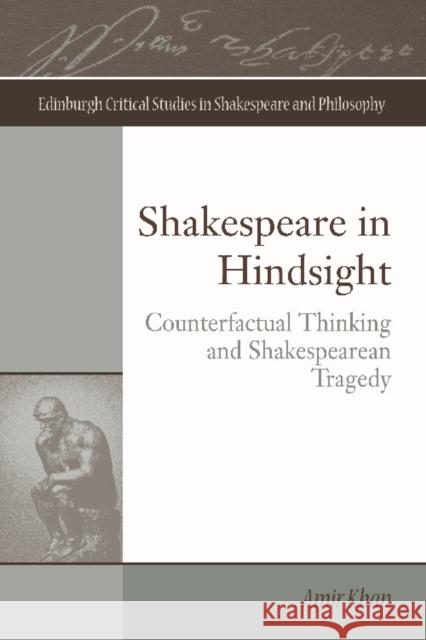Shakespeare in Hindsight: Counterfactual Thinking and Shakespearean Tragedy » książka
Shakespeare in Hindsight: Counterfactual Thinking and Shakespearean Tragedy
ISBN-13: 9781474409452 / Angielski / Twarda / 2015 / 248 str.
Shakespeare in Hindsight: Counterfactual Thinking and Shakespearean Tragedy
ISBN-13: 9781474409452 / Angielski / Twarda / 2015 / 248 str.
(netto: 466,45 VAT: 5%)
Najniższa cena z 30 dni: 352,62
ok. 30 dni roboczych.
Darmowa dostawa!
We know William Shakespeare matters but we cannot pinpoint, precisely, why he matters. Lacking reasons why, we do our best to involve him in others, or involve others in him. He has been branded many times over-as Catholic, Protestant, Materialist, Marxist, Psychoanalytic, Feminist, Postcolonial, Popular, Cultural, and, even, Popular-Cultural. In many ways, Shakespeare is overwrought. Why one more 'approach' to Shakespeare? One reason is because whatever these approaches say about tragedy in particular, none of them help us to feel tragedy. Or, rather, they subordinate tragedy to something else-to considerations of, say, class, race, or gender. What these approaches manage to do is explain tragedy away. What this book does is to help us feel tragedy first and foremost-hence to perceive it better. The aim of Amir Khan's counterfactual criticism of Shakespeare's tragedies, Hamlet, King Lear, Macbeth, A Winter's Tale and Othello, then, is precisely to reanimate the tragic effect, long since lost in some deluge of explanation.











